The One Health Workshop is jointly held with presenters from Faculty of Agriculture, Food & Environment, Hebrew University of Jerusalem; Faculty of Medicine, Tel Aviv University; University of Tennessee, Knoxville

Organizing committee: Prof. Deb Miller, Prof. Nina Fefferman, Dr. Jamie McGowan, Prof. Karen B. Avraham, Prof. Dalit Sela-Donenfeld, and Ms. Ariela Fleger
Date: Thursday, November 11, 2021
Time: 7:00 – 11:00 am ET US | 2:00 – 6:00 pm ISR time
Held Online on Zoom
Click here to download an event flyer!
Click here to download the agenda.
Presenters include:
Bruria Adini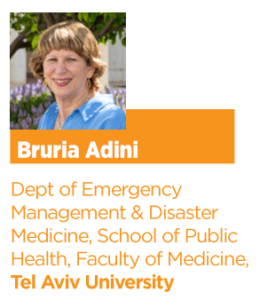 , Department of Emergency Management & Disaster Medicine, School of Public Health, Faculty of Medicine, Tel Aviv University
, Department of Emergency Management & Disaster Medicine, School of Public Health, Faculty of Medicine, Tel Aviv University
“Managing the COVID-19 pandemic: Fear, anxiety, and resilience”
Dr. Adini’s One Health research interests include examining the impact of global warming on the public health of human beings and animals as well as strengthening communication and collaboration between human health and animal health as a way to enhance resilience.
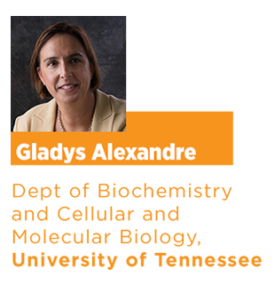 Gladys Alexandre, Department of Biochemistry and Cellular and Molecular Biology, University of Tennessee
Gladys Alexandre, Department of Biochemistry and Cellular and Molecular Biology, University of Tennessee
“Harnessing nitrogen fixation in plant growth-promoting bacteria for sustainable agriculture”
Microbial inoculants can enhance crop yields and reduce reliance on expensive and environmentally harmful chemical nitrogen fertilizers.
Alexandre’s lab addresses the molecular mechanisms underlying strategies used by bacteria used a biofertilizer worldwide to navigate the plant rhizosphere and locate niches compatible with root surface colonization and nitrogen fixation. Fundamental knowledge of these behaviors is a prerequisite to developing predictive algorithms and bioengineering strategies for the selection of elite bacterial candidates as microbial inoculants.
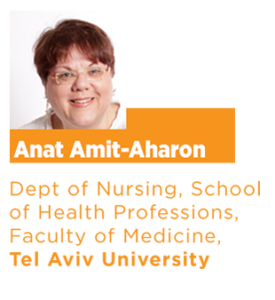 Anat Amit-Aharon, Department of Nursing, School of Health Professions, Faculty of Medicine, Tel Aviv University
Anat Amit-Aharon, Department of Nursing, School of Health Professions, Faculty of Medicine, Tel Aviv University
“The association of syndemics theory to health disparities”
Dr. Amit-Aharon focuses on health disparities and health promotion. She explores the health promotion processes of individuals and of the community and how cultural and environmental diversity that generates health differences and disparities can be dealt with by means of educational and health promotion processes.
Dr. Amit-Aharon developed studies based on the syndemic theory to explore the social context of health disparities. She uses qualitative and quantitative research methods and a variety of statistical models to optimally analyze the results (for example, hierarchical regression, logistic regression, path analysis method, process analysis, SEM analysis, and others).
Benny Chefetz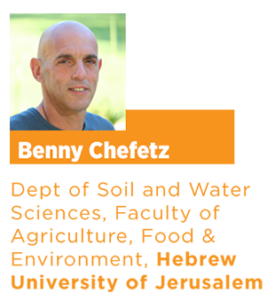 , Department of Soil and Water Sciences, Faculty of Agriculture, Food & Environment, Hebrew University of Jerusalem
, Department of Soil and Water Sciences, Faculty of Agriculture, Food & Environment, Hebrew University of Jerusalem
“Water reuse: Mixture of chemicals of emerging concern in our produce”
Dr. Chefetz’s main research scope is to enhance knowledge and understanding of the fate and interactions of organic pollutants such as pesticides, pharmaceuticals, EDCs, and other anthropogenic compounds in soil and water and the agro-environment. The primary focal point is following the fate of pharmaceuticals originating from reclaimed wastewater in agricultural ecosystems and the consequent health effects.
Ehud Elnekave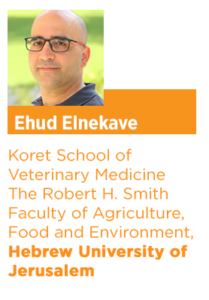 , Koret School of Veterinary Medicine, Faculty of Agriculture, Food and Environment
, Koret School of Veterinary Medicine, Faculty of Agriculture, Food and Environment
“Salmonella foodborne infections – a major risk for public health”
Dr. Elnekave studies the epidemiology and evolution of zoonotic bacterial pathogens of livestock origin. He is interested in having a better understanding of topics such as pathogens emergence and spread and antimicrobial resistance transmission. The outcomes of his studies can be translated into practical measures (such as vaccinations) that can be taken to prevent disease outbreaks, reduce antimicrobial resistance spread and protect public and animal health.
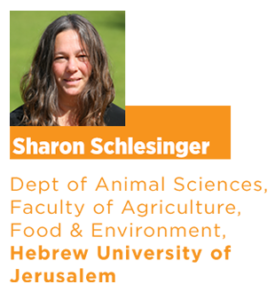 Sharon Schlesinger, Department of Animal Sciences, Faculty of Agriculture, Food & Environment, Hebrew University of Jerusalem
Sharon Schlesinger, Department of Animal Sciences, Faculty of Agriculture, Food & Environment, Hebrew University of Jerusalem
“The effect of heat shock on the transcriptional regulation of bovine mesenchymal stem cells”
Dr. Schlesinger’s research is focused on fundamental questions of stem cell biology and epigenetics. In particular, she is interested in having a deeper understanding of the general characteristics of pluripotency in mammalian cells. Additionally, she uses mesenchymal stem cells (MSC) to examine the effect of environmental stress on cellular fate.
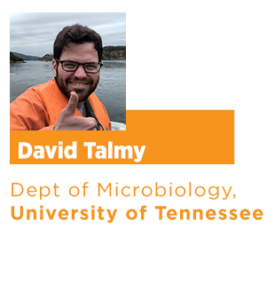 David Talmy, Department of Microbiology, University of Tennessee
David Talmy, Department of Microbiology, University of Tennessee
http://www.talmygroup.com
“Understanding the molecular basis of competition among cyanobacteria in contrasting ecosystems”
Dr. Talmy is broadly interested in the study of planktonic ecosystems and their imprint on global biogeochemical cycles. He utilizes quantitative mathematical models and incorporates mechanistic biological information to understand sub-cellular controls on large-scale ecosystem patterns.
Including a session on US & Israeli funding opportunities With sessions to promote scholarly introductions and international collaboration